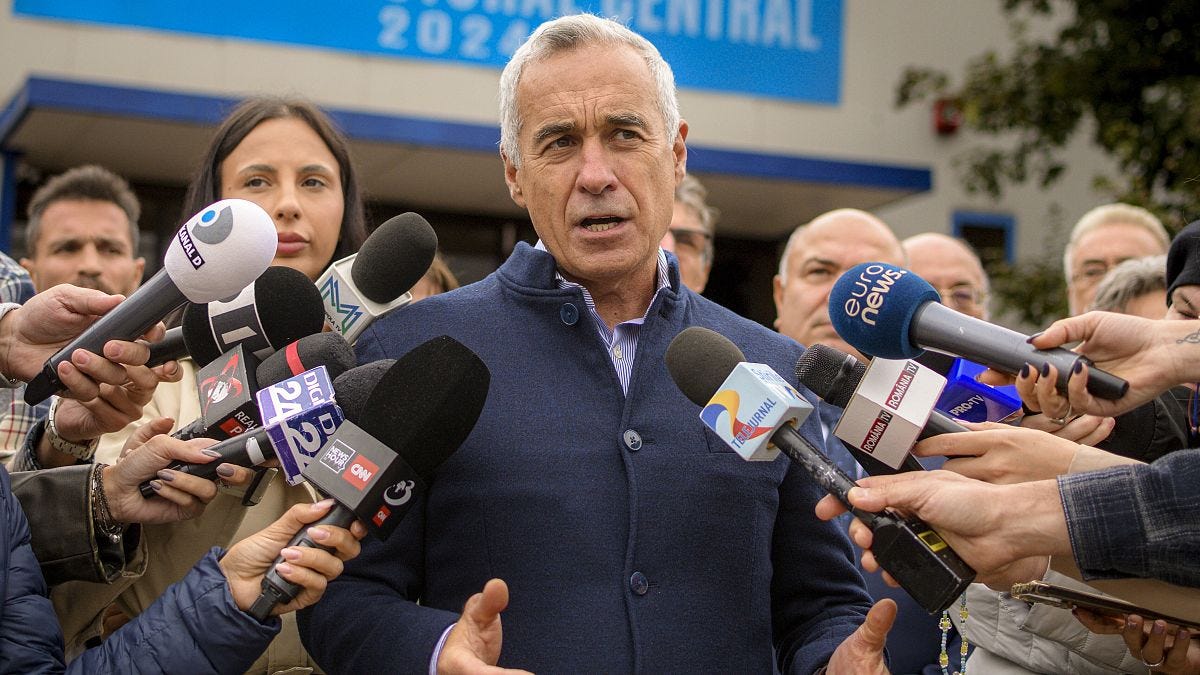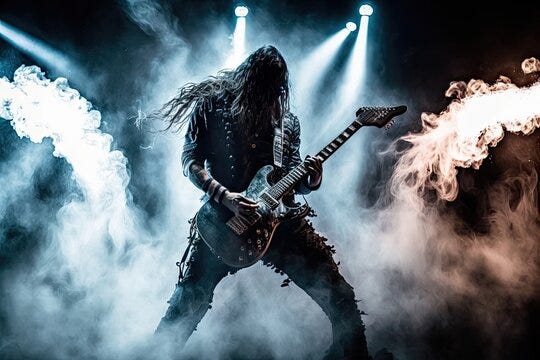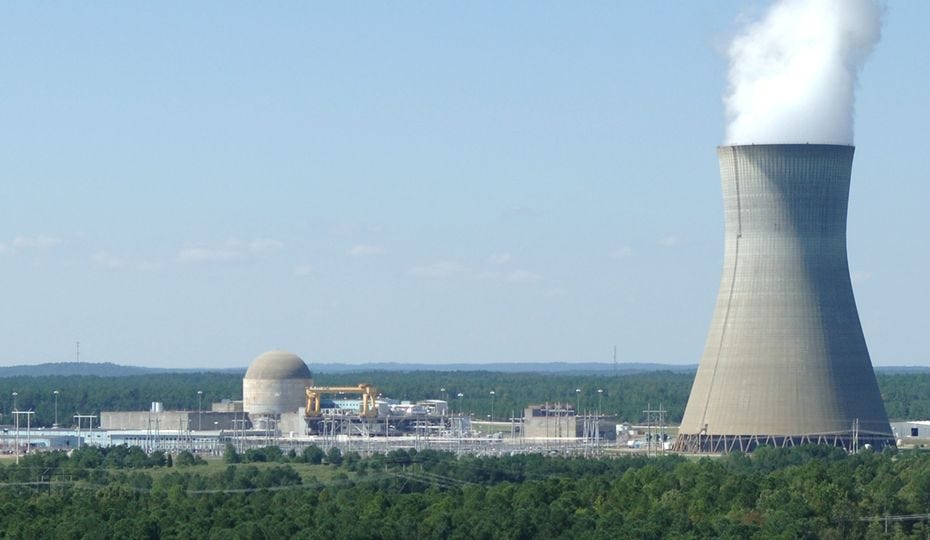Notes from the edge of civilization: December 1, 2024
Why outsiders keep winning elections; hello-goodbye in the land of maple syrup; heavy metal therapy; and AI the power hog.
In Romania, a political outsider just shocked the nation by winning the first round of voting, leveraging nationalist rhetoric and TikTok’s algorithm to reach disillusioned voters. Călin Georgescu’s message resonated with older as well as younger generations, who voted as a "protest" against entrenched corruption and to express frustration with stagnating wages and a rigged system.
Sound familiar? That’s because it is. In the recent US election, many voters similarly cast their ballots for an outsider candidate as a rebuke to political elites, driven by comparable economic grievances and mistrust in mainstream parties. When the same frustrations brew, the same patterns emerge — even when the countries and contexts are wildly different.
Both elections highlight a recurring theme: systemic failures of institutions that ignore public frustrations. When people feel abandoned by a system, they vote to shake it up. Romanian voters turned to Georgescu not necessarily for his ideology, but as a rejection of the political establishment. It’s less about liking the candidate and more about disliking the status quo.
This isn’t just a Romanian thing, or an American thing, for that matter. This pattern repeats worldwide. Disillusionment with elites, rising inequality, and a sense of being left behind keep pushing voters to seek alternatives, no matter how unconventional those alternatives may seem. It’s a reminder to leaders everywhere: ignore public frustration at your own peril. When systems fail to serve their people, those people will demand change — whether it’s with their votes or with their feet. The pitchforks haven’t come out… not yet, anyway.
Which brings us to another kind of rebellion, a silent, slow killer of nations: leaving altogether. Canada’s brain drain is a textbook example. It’s a national game of bait-and-switch that goes like this: lure in skilled workers with promises of endless opportunity, then leave them drowning in high taxes and brutal living costs. Unsurprisingly, they bail. And fast.
From 1982 to 2019, 20% of immigrants left the country, nearly half of them skilled economic migrants — the very people Canada actively recruits to drive growth. With over a third departing within five years, it’s not just individuals leaving; it’s a massive loss of talent and investment. High taxes, unaffordable living costs, and a lack of long-term prospects are driving them away, while global competition for skilled workers makes it harder than ever to keep them.
Here’s a stat that bears that out: Twitter user Tablesalt13 shared news that Canada just welcomed a record 1.2 million new immigrants in 2024 but only created 94,000 net new jobs, most of which were in the public sector. That’s a jobs-to-immigrant ratio of 1:13. Meanwhile, private sector industries like retail, food services, and management are tanking. Translation? Canada is hiring more bureaucrats to shuffle paperwork, but not creating enough sustainable opportunities to keep people there.
If this trend continues, Canada’s new national motto might as well be, “Come for the promises, stay for the disappointment.”
While some rebel by voting — or leaving the country entirely — others find solace in heavy metal. Once unfairly demonized as dark or dangerous, rock and metal are proving to be lifelines for mental health. In 2024, with mental health less taboo than ever, the metal community’s decades-long quiet support for fans’ emotional struggles is finally getting its due recognition.
What began six years ago as an online space for fans to share mental health recovery stories has grown into a movement — Heavy Metal Therapy (HMT) — with resources, playlists, and even group meetings in six UK locations. HMT flips the old stereotype of metal as “bad for mental health” on its head. As Dr. Kate Quinn, a founder of HMT, explains, “Most of our followers tell us that rather than making them feel more depressed or angry, listening to metal actually helps them process those emotions and feel calmer.” Research agrees — metal can reduce cortisol levels, lowering stress and boosting resilience.
The community aspect is just as vital. Festivals, charities, and bands are stepping up to support fans and crew alike. The Tonic Rider program offers mental health resources at festivals like Takedown, while events like the Metal Health for Mental Health Festival in the US raise funds for suicide prevention.
And let’s not forget the bands themselves. From Metallica’s raw explorations of despair in songs like Fade to Black to Linkin Park’s deeply personal lyrics that connect with fans’ struggles, these artists have long been champions of emotional openness. Placebo, whose music has tackled mental health themes since the 1990s, continues to resonate with fans today. As one fan reflected, “The song ‘Surrounded by Spies’ literally kept me sane during the hardest time of my life.”
Whether through lyrics that voice deeply personal struggles or charities that build communities of care, the rock and metal scene is showing that catharsis and connection go hand in hand. In a world where negative thoughts don’t take a break, sometimes the best support system is the one you find in a mosh pit — or a playlist.
Let’s move from Heavy Metal to electricity, because one isn’t possible without the other. Turns out AI and cloud computing aren’t just reshaping the economy — they’re guzzling electricity at an alarming rate. Data centers, the backbone of our tech obsession, are ballooning to monstrous sizes, demanding up to a gigawatt of power each. For context, that’s double what Pittsburgh used last year.
And here’s the kicker: renewable energy isn’t ready to keep up. Developers admit that natural gas will have to fill the gap, which feels like solving a water shortage by cracking open a fire hydrant. That’s only a small part of it, though. Remember how demonized nuclear energy was post Fukushima meltdown circa 2011? Well, fission is back with a vengeance — all the big tech companies are not only signing exclusive power-supply contracts with nuclear power companies — including the building of bespoke power plants — but in some cases investing heavily in nuclear power companies, knowing full well they’re going to need plenty of power for their own AI server farms. Open AI comes to mind with its heavy investment in Oklo.
This is to say nothing of finding enough land for these mega-facilities, which is turning into its own logistical nightmare.
As the AI boom drives data centers to unprecedented scales, it’s clear we’re facing more than a tech revolution — we’re grappling with the environmental and societal trade-offs of keeping the machines running. How much are we willing to push our power grid, our land use, and our carbon targets to fuel this tech explosion? One thing’s for sure: this is no longer just about convenience or innovation. It’s about deciding what kind of future we’re really building.







You had me at “Heavy Metal Therapy”🤘🏽
Always had a soft spot for Metal, unfortunately most people can't get beyond the thought of Heavy Metal to really here what's being said " War Pigs "